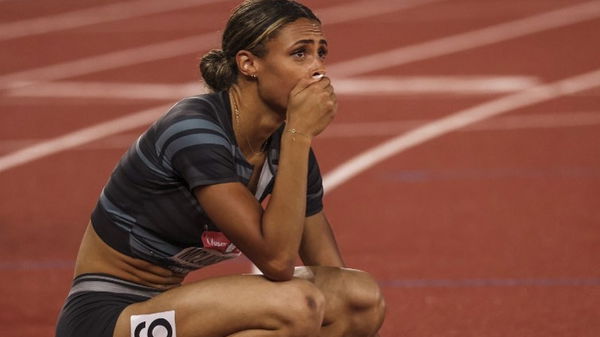

You know that saying, ‘Fall down seven times, get up eight‘? Sydney McLaughlin-Levrone’s story is basically that in action. On the outside, she looks like the ultimate athlete, world record holder, Olympic champ, and one of the best in the 400m hurdles. But what if I told you that even Sydney has had moments where she didn’t think she was good enough? Doesn’t that make her story even more relatable? Let’s rewind to the 2019 World Championships in Doha. Sydney went into the 400m hurdles final with big hopes of winning but ended up in second place, behind American rival Dalilah Muhammad.
Can you imagine how tough that was, especially with all the pressure on her? In her book Far Beyond Gold: Running From Fear to Faith, Sydney opens up about how devastating that moment was. “I didn’t want to hear the congratulations. I didn’t want to be told that I’d just run a brilliant race. I knew the truth. I’d fallen short, yet again,” she wrote. Have you ever had the feeling that everything is conducive to a great performance, but your heart tells you otherwise? That’s how Sydney felt.
But the most emotional part was after the race. Sydney saw her dad, Willie McLaughlin, inside a tunnel. She struggled to remain calm but failed. As she says, “I couldn’t hold back the tears anymore….I sobbed uncontrollably,” she remembers. Second was not a victory for her, but a defeat, remembering that she had not yet become the best. As she puts it, “By the end of that trip, I was broken. I knew, without a doubt, that I needed help. I had no sense of control anymore. Everything that had once seemed to be my peace quickly became my nightmare. I couldn’t fix myself. I couldn’t let go of my fear, anxiety, and need for approval on my own.“Although she was young and therefore could run an incredibly fast time, it did not feel like enough.
ADVERTISEMENT
Article continues below this ad

ADVERTISEMENT
Article continues below this ad
The interest of Sydney’s journey, nonetheless, is the fact that she did not succumb to that loss. She just thought of it as a trial and ensured that it could not prevent her from pushing. During the U.S. Olympic trials in June 2021, Sydney took the crown as the world record holder in the women’s 400-meter hurdles by breaking Dalilah’s record by comfortably making the run in 51.90 seconds, thereby completing the record books. That is until she moved to Tokyo, where she improved her record by existing 51.46 seconds. However, Sydney McLaughlin-Levrone was molded into a legendary hurdler by her father.
ADVERTISEMENT
Article continues below this ad
One simple coaching philosophy turned Sydney McLaughlin-Levrone into a legend
The current record belongs to Sydney McLaughlin-Levrone, who is only 25 years old, and she finished the race at the 2024 Olympics in Paris, where she covered it in 50.37 sec, which is much better than her previous record set at the Tokyo Olympics, where she did it in 51.46 sec. Though she is popular for her speed, what boosted her chances right from the start originated from the simple ground prepared by her father, Willie. She had Willie as her first and only coach up to the middle school level, and he didn’t put much technique in his coaching, just basic and always motivating words. His coaching mantra was all about running faster than everyone else. “Float like a butterfly, sting like a bee” adage.
What’s your perspective on:
Does Sydney McLaughlin-Levrone's story prove that resilience and family support are the keys to success?
Have an interesting take?
At the 2024 Paris Olympics, she not only set a world record in the 400m hurdles but also helped anchor Team USA to victory in the 4x400m relay, securing a new relay time of 3:15.27. She has also triumphed at the World Championship and has 3 golds and 1 silver, which includes her performances at the Eugene Worlds in 2022. The great transformation of Sydney isn’t a great gift of talent; it is about the good base that her father established. “Track was never a fight in my house. It was as much a part of my family as dinner and church,” she said. With her historic achievements and ongoing legacy, McLaughlin-Levrone continues to inspire youngsters!
ADVERTISEMENT
ADVERTISEMENT
ADVERTISEMENT
ADVERTISEMENT


Does Sydney McLaughlin-Levrone's story prove that resilience and family support are the keys to success?